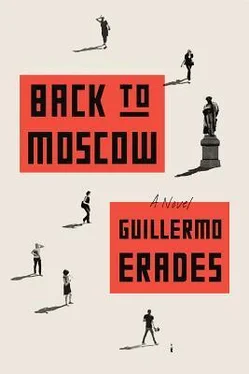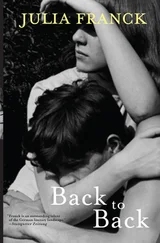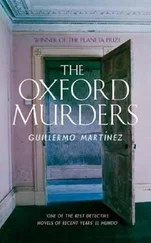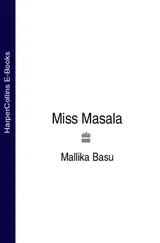Happy ending? Not so fast. Now comes destiny, always capricious and stubborn, returning in the form of Varvara Pavlovna, who unexpectedly shows up in the provincial town, with her fashionable Parisian clothes and refined manners — the announcement of her death having been a mistake born of a baseless rumour. She asks for her husband’s forgiveness.
Varvara Pavlovna’s return means that Lavretsky is no longer free — death being in those days pretty much the only way out of a marriage. Lavretsky has to give up on Liza, and Liza — whose heart had been set on Lavretsky — is condemned to live without love.
But why had Liza chosen Lavretsky? Even if Varvara Pavlovna had really been dead, anyone could see that Panshin offered a more promising future.
Ivan Sergeyevich doesn’t linger on Liza’s choice and yet this choice stands at the core of the novel. Because, for some reason, Liza chooses the option that will clearly make her less happy.
Happiness on Earth does not depend on us, Liza says, as she retreats into a state of melancholy.
Liza’s choice tells us a great deal about the Mysterious Russian Soul. Liza shows us that toska, a deep spiritual sorrow, is worth pursuing in itself. Beautiful, self-inflicted pain.
Liza’s sheer beauty as a character derives from her suffering, her tragic destiny, her Russianness. Even Dostoyevsky, in the Pushkin Speech, mentions Turgenev’s Liza as the one female character capable of standing up to Pushkin’s Tatyana.
At the end of the story, Liza enters a monastery, embracing a life of sacrifice and privation.
‘Happiness was not for me,’ she says, explaining her decision. ‘Even when I had hopes for happiness, my heart was always heavy.’
AS SUMMER HIT MOSCOW, a troop of corpulent babushkas took over the stairs of the metro entrance in Pushkinskaya. They sat every morning on tiny stools, leaning against the wall next to the newspaper stands, selling flowers, jam, honey, salt cucumbers, pickled mushrooms. They kept their flowers, which were tied with rubber bands, inside buckets of water or plastic bottles that had been cut in half. I never bought flowers but I liked the home-made jams, especially strawberry, and so did Tatyana. I would buy one or two jars, and, every night, drinking tea after dinner, Tatyana and I would eat the jam with a shared spoon, straight from the jar.
Tatyana was now spending five nights a week in my flat. I’d emptied three drawers and given her half the hanging space in the wardrobe, but she had more clothes than I’d imagined — most of which she never wore — so she also kept two bulging suitcases in a corner of the living room.
Most nights we stayed at home but sometimes, on Wednesdays or Thursdays usually, we went out to the theatre or to eat sushi. Every Friday morning, Tatyana took an overnight bag with her and, after work, she went to her aunt’s to spend the weekend.
‘Sounds like you got yourself a part-time girlfriend,’ Colin said when I told him about the arrangement.
In the mornings, after Tatyana was gone, I would take a shower, dress, and go for walks around the centre. I would walk for an hour or so and, when I got tired, I would sit in cafés, reading Russian books, taking notes.
One warm day in July, I was in Coffee Beans, on the leather couch by the window, trying to read yet another chunk of War and Peace . I was unable to focus on the task — distracted by a parade of miniskirts and high heels in Tverskaya — when one of the parading dyevs entered the café, bought a cup of coffee, and sat at a small table in front of me. Dark hair, brown eyes. She was wearing a white summer dress with colourful flowers. Out of her handbag she took a book and placed it on her table. She sipped at her coffee — a cappuccino, I noticed, as she licked the foam off her upper lip — opened the book and held it on her lap. Our eyes met a couple of times and she smiled. I smiled back.
Two months earlier I would have initiated a conversation straight away. But now things were different. Even if I had resolved to feel free, an unwelcome change that having a girlfriend had brought to my life was guilt. I felt guilty, not about seeing other girls on the weekend, which was necessary if I wanted to sustain my relationship with Tatyana, but about having to lie. The stories I made up to account for my weekends made me uncomfortable, especially since Tatyana believed every word I said. Her blind trust only made me see her as vulnerable, in need of protection. My protection. As a result, the more I lied to her, the stronger my feelings for her became.
The dyev with the flowery dress stared at me and I felt my entire body heating up. I could no longer keep my eyes on my book. It crossed my mind that, at that moment, it would be best to stand up, leave the café, forget about her. Let it be 1905. I’d done this before so I knew that, if I moved on — if I walked away and tried to fill my mind with different thoughts — in an hour or so I would beat the urge to be with the dyev with the flowery dress.
She went for a second cappuccino and returned to her table.
In my head, I summoned the image of Tatyana and tried to remember how I felt when I’d first laid eyes on her, in Kamergersky. Surely something like this. I knew that what I felt for the dyev in the flowery dress, the ferocious desire crawling up from my stomach, was not a long-lasting feeling. I knew this. I knew this. I knew this. But this knowledge was rational, self-imposed, totally useless.
Next thing I knew, the dyev was talking to me.
‘Do you mind keeping an eye on my stuff for a minute?’ she said.
Her voice was deeper than I had imagined.
‘Please,’ I said, nodding.
After a couple of minutes she came back from the toilet. She had put on fresh make-up.
‘I love the coffee in this place,’ I said.
Her smile revealed perfect white teeth. ‘What are you reading?’
‘Tolstoy,’ I said, holding the book up.
‘ War and Peace , interesno. We were forced to read it in school, but I never finished it. Such a long book.’
I smiled.
‘I prefer modern writers,’ she said. ‘Do you know Akunin or Pelevin?’
‘I’ve heard about them. Haven’t read anything yet.’
‘Vika, by the way.’
‘Martin.’ I took my book and my empty mug and moved to her table.
Twenty minutes later we were wandering down Tverskaya. The air was warm, the pavement full of people strolling leisurely, in summery clothes. The scent of coconut oil rising from Vika’s tanned shoulders provoked in me a flash of feeling, a half-memory of salty beaches and childhood summers. When we reached Kamergersky, we turned left and passed Chekhov’s statue — where I tried not to think about Tatyana — and walked among tables and chairs that were now busy with people gathering for lunch.
Vika asked for my coming-to-Russia story, and, for no particular reason, I decided not to tell her about my research. Instead, I told her that I was in business, that my business partner owned a car dealership in Prospekt Mira.
‘And you don’t have your own car?’ she asked.
‘I prefer to walk.’
‘What about long distances?’
‘Moscow has the best metro system in the world.’
Vika smiled, partly satisfied, but obviously puzzled that I was able to afford but did not own a car. Then she told me she was studying journalism. She wanted to become a foreign correspondent.
Vika was petite but, unlike Tatyana, she walked with determination and self-confidence. At the end of the pereulok we turned left and walked along Bolshaya Dmitrovka, keeping on the shaded side of the street. We then reached the Boulevard and walked down along the central dirt path. I was looking for a place to sit, but all the benches were occupied by young people drinking beer, smoking and kissing. Then I spotted an empty bench in the shade. We walked towards it, and, without saying a word, took a seat. Vika sat on my right and I put my right leg through the space between the seat and the back.
Читать дальше












